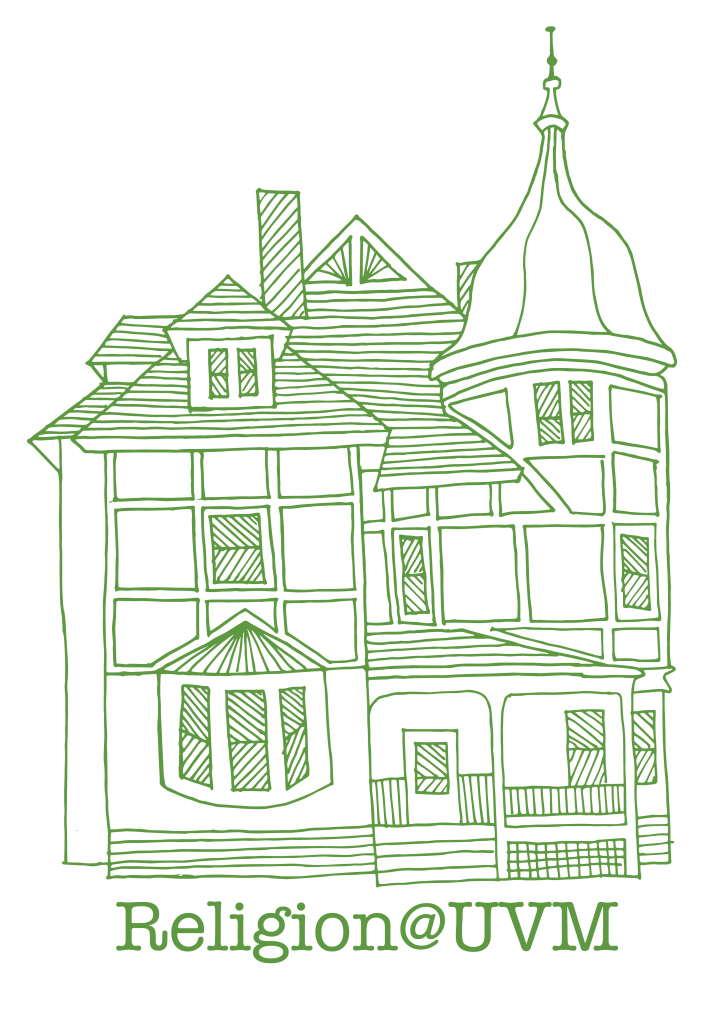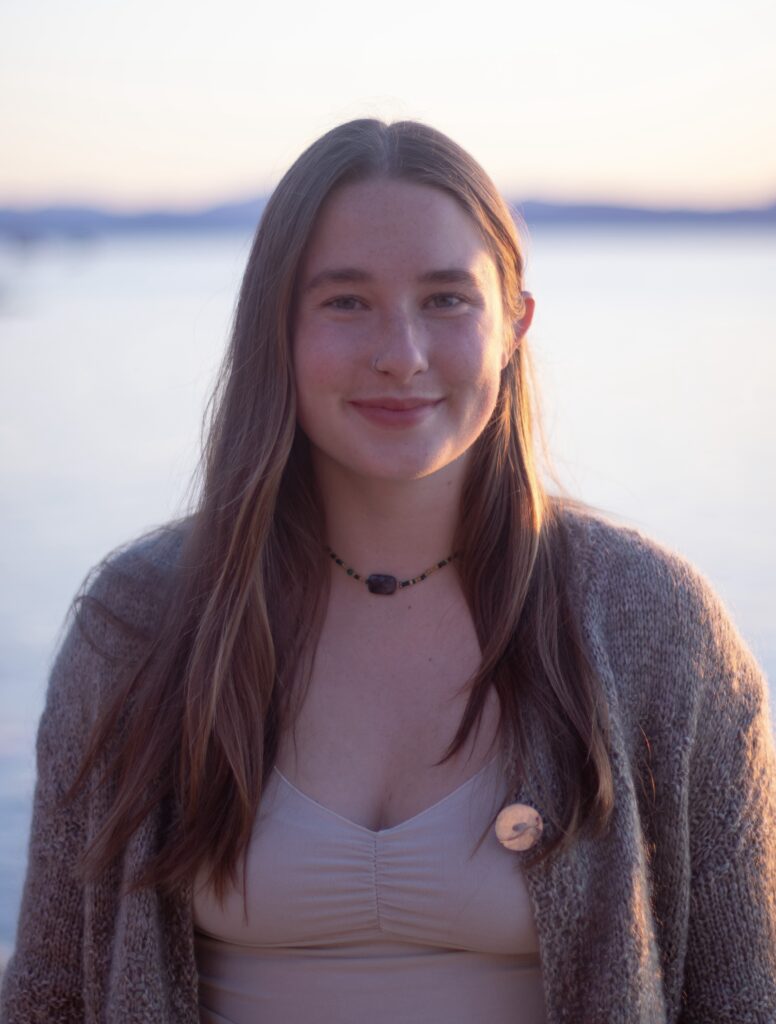While at UVM, I realized the importance of place for both context and solutions to inequities and injustices. … I am committed to taking the social justice and equity focused learning I engaged in at UVM into the field [of Urban Planning], recognizing how religion is always involved in the built environment.
– hanna hartman
Why did you major in Religion?
I declared religion as my major in my initial application to UVM as a high school senior on the recommendation of one of my social studies teachers. I was taking an introductory course on Buddhism at Amherst College at the time (a perk available to high schoolers in Amherst, MA!), which I had chosen based on my interest and experiences in Buddhism through attendance at Karmê Chöling, a Shambhala Center in the Northeast Kingdom. For some reason, it hadn’t clicked for me that I was interested in religion as an academic topic, even though it functioned as a method of finding community and meaning in the world around me. As a prospective student, I met with Professor Borchert and our conversation ‘sealed the deal’ that the small department and its engaging course options would be a good fit for me! Throughout my time at UVM, I have treasured the compelling discussions and projects in each of my Religion classes. The department has given me the skill of systems-level thinking about the world’s sticky problems.
Where do you imagine yourself in 10 years?
While at UVM, I realized the importance of place for both context and solutions to inequities and injustices. Additionally, I was introduced to sustainable transportation and the creation of dense, walkable cities and towns as ways to mitigate the climate crisis. This summer, I will be joining the Town of Williston’s Planning and Zoning department as a Planning Technician. I would eventually like to get a master’s degree in Urban and Regional Planning. I am committed to taking the social justice and equity focused learning I engaged in at UVM into the field, recognizing how religion is always involved in the built environment.
Imagine a first-year student has asked your advice about REL courses. What’s the one she shouldn’t dream about missing? Why?
Any class with Professor Morgenstein Fuerst, because of the immensely relevant readings and discussions, as well as laughs! The seminars offer the challenge of a semester-long research paper—a difficult but intensely rewarding opportunity to grow as a student. I have always appreciated her willingness to go on tangents about issues that matter to her students.
If you could write any book, what would it be?
Considering I just completed my honors thesis in Geography, “Becoming Burlington: An Analysis of Citizen Engagement in Waterfront Revitalization,” I would love to (eventually) expand my research into a complete book on the topic. It’s crazy how 100 pages of writing and a year of thought on the last 40 years of Burlington’s public access-focused redevelopment doesn’t feel like it’s encapsulated the full story!
Any fond memories of the Department you want to share?
I will always appreciate my time in the Religion department for the quick moments chatting with professors and students in the hallways about anything from our frustrations about our university’s administration, to academic successes, to plans for going chilly dipping. I am grateful for the friendships and mentorships that I’ve found here and I know that these relationships will extend beyond the classroom.


